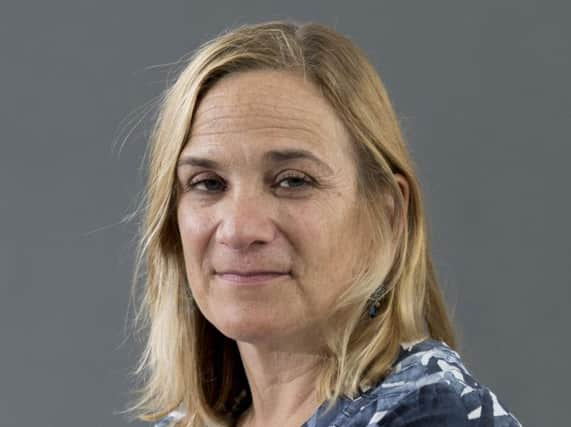Edinburgh Book Festival: Tracy Chevalier, Dina Nayeri, Nick Thorpe & John Burnside


Reading from the novel in public for the first time, Chevalier explained what led her to the subject, a young woman who joins a group of embroiderers making kneelers for Winchester Cathedral in the 1930s.
The event was warmly chaired by Clare Hunter, a banner-maker and author of Threads of Life: A History of the World Through the Eye of a Needle, who knows more than most about the power of sewing to bring calm, release creativity and create community. Chevalier’s character, Violet Speedwell, one of a generation harshly termed “surplus women” who were left without suitable matches by the First World War, finds all these things and more with the stitchers, whose work can still be seen in the cathedral today.
Advertisement
Hide AdStories was very much to the fore earlier in the day when novelist Dina Nayeri and journalist Nick Thorpe addressed the subject of refugees. Nayeri, who fled Iran for the US with her family in the 1980s, weaves her own story into her new book, The Ungrateful Refugee, along with those of others she encountered on visits to present day refugee camps. Thorpe, who is the BBC’s Central Europe correspondent, followed those he met on the “Balkan road” into Europe, who had fled the Middle East and Africa, through to their destination countries.
A refugee needs a story, and will need to tell it again and again flawlessly to the authorities if they are to be granted asylum. Yet stories of a different kind are also told in the countries through which migrants travel and in which they hope to settle, nationalist stories which can be twisted by populist politicians to prompt local people to close their doors and their borders.
Language can tell us a lot, Nayeri pointed out. Migrants are described in terms of “swarms” or “floods”, words that evoke plague and disaster but which are not accurate reflections of their numbers. Yet stories are also the best hope of those who speak on behalf of the displaced because they can separate the individual from the “swarm”, demonstrate that the refugee is not so different from ourselves, and call upon a common humanity.
Burnside – while determined not to apologise for him – argued that “chunks of gold” could yet be found “amongst all this other stuff”: Miller’s critique of masculinity, his commitment to anarchist ideas, his ability to take a fresh angle on everything he wrote about, and his shrewd and persistent questioning of modern life. His 1946 novel, The Air Conditioned Nightmare, is a critique of capitalism gone mad and the cult of celebrity, long before these came to be the blight which they are today.
Susan Mansfield